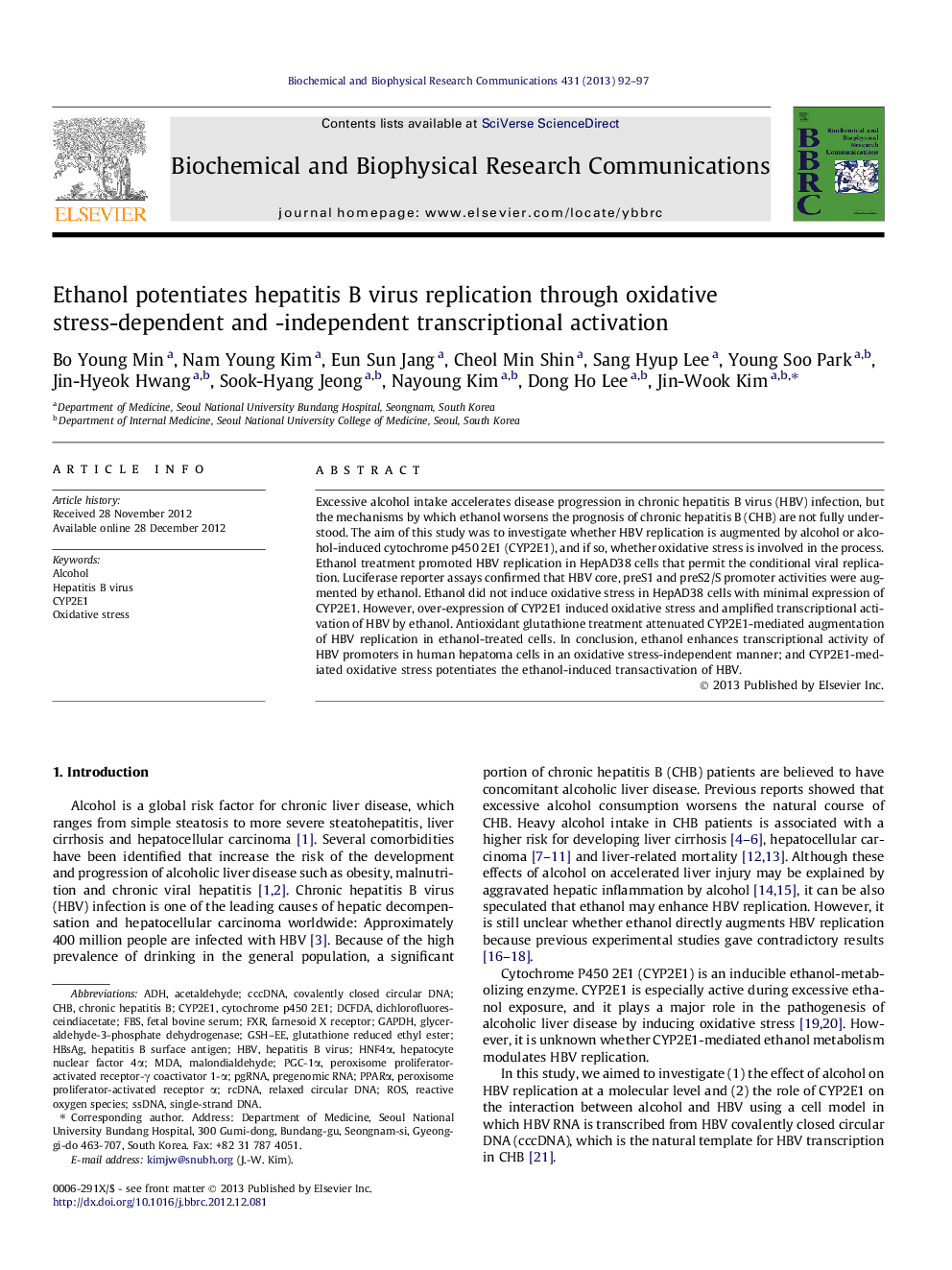| Article ID | Journal | Published Year | Pages | File Type |
|---|---|---|---|---|
| 1928929 | Biochemical and Biophysical Research Communications | 2013 | 6 Pages |
Excessive alcohol intake accelerates disease progression in chronic hepatitis B virus (HBV) infection, but the mechanisms by which ethanol worsens the prognosis of chronic hepatitis B (CHB) are not fully understood. The aim of this study was to investigate whether HBV replication is augmented by alcohol or alcohol-induced cytochrome p450 2E1 (CYP2E1), and if so, whether oxidative stress is involved in the process. Ethanol treatment promoted HBV replication in HepAD38 cells that permit the conditional viral replication. Luciferase reporter assays confirmed that HBV core, preS1 and preS2/S promoter activities were augmented by ethanol. Ethanol did not induce oxidative stress in HepAD38 cells with minimal expression of CYP2E1. However, over-expression of CYP2E1 induced oxidative stress and amplified transcriptional activation of HBV by ethanol. Antioxidant glutathione treatment attenuated CYP2E1-mediated augmentation of HBV replication in ethanol-treated cells. In conclusion, ethanol enhances transcriptional activity of HBV promoters in human hepatoma cells in an oxidative stress-independent manner; and CYP2E1-mediated oxidative stress potentiates the ethanol-induced transactivation of HBV.
► Ethanol promotes replication of hepatitis B virus (HBV) by activating promoter activity in HepAD38 human hepatoma cells. ► Ethanol does not induce oxidative stress in HBV-replicating HepAD38 cells with minimal CYP2E1 expression. ► Overexpression of CYP2E1 induces oxidative stress and transcription of HBV in ethanol-treated HepAD38 cells. ► Oxidative stress-dependent and -independent transcriptional activation contributes to ethanol-induced HBV replication.
